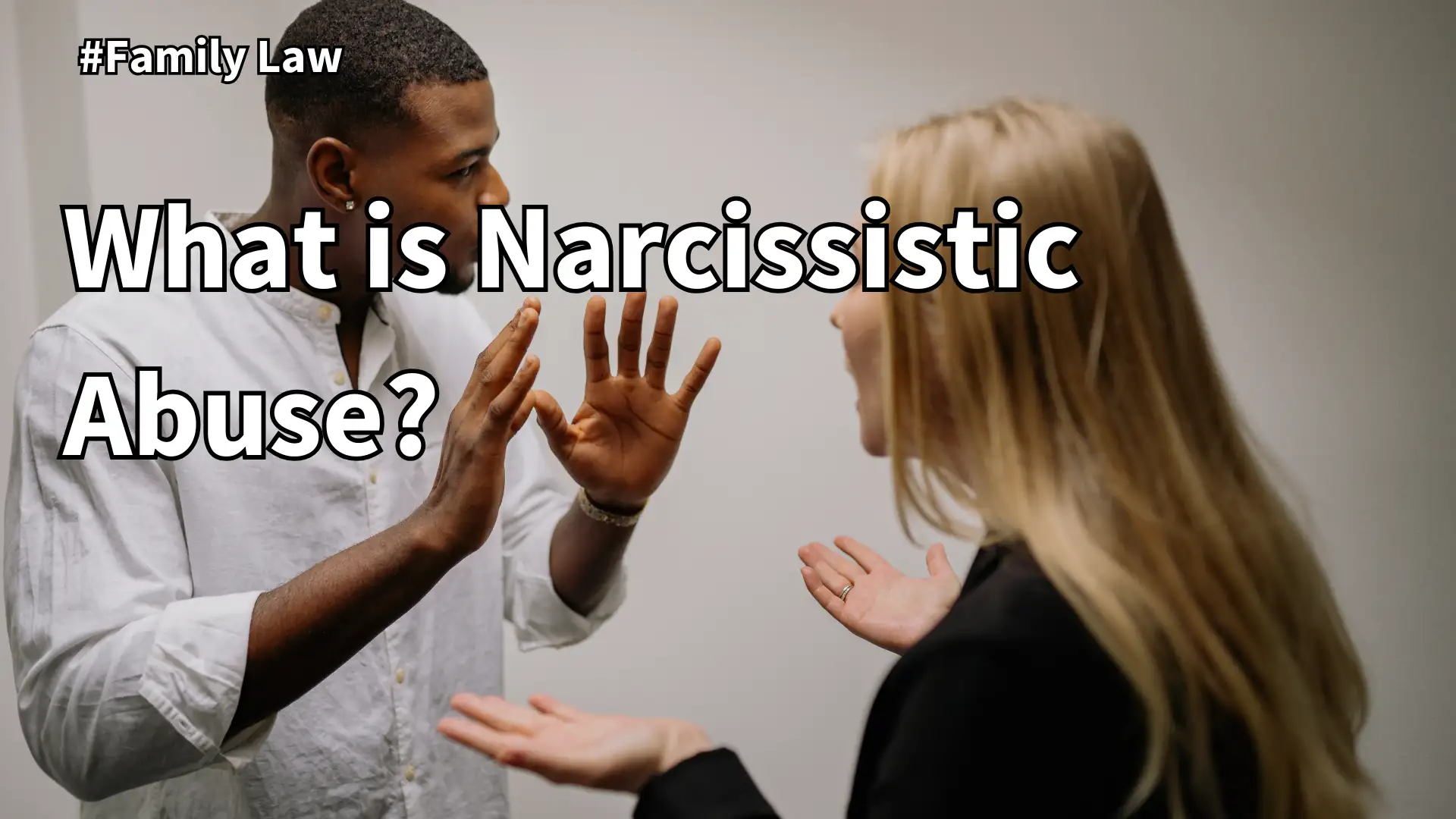Narcissistic abuse is an emotional and psychological abuse that can damage how a person sees themselves and the world around them. It’s not always easy to spot because it doesn’t leave physical marks. Instead, it often comes with charm, control, and confusion. This kind of abuse can happen in romantic relationships, between parents and children, or between co-parents. Many victims don’t even realize it’s happening until the damage is already done.
Over time, the person being abused may feel confused, blamed, or as if they can’t trust their thoughts or feelings. This is due to patterns such as gaslighting, blame-shifting, and other forms of manipulation. The first step to getting out of this kind of abuse is learning how to recognize it. Once someone understands what’s happening, they can begin to set boundaries, seek help, and start the healing process.
Common Signs of Narcissistic Abuse
Narcissistic abuse follows patterns, even if the behaviors vary. Here are common signs to watch for:
- Love Bombing – Narcissists often start relationships with intense attention and affection, known as love bombing. It feels exciting, but it is a way to gain trust quickly. Once the other person becomes attached, the narcissist’s behavior often changes, becoming distant, controlling, or hurtful to keep power in the relationship.
- Gaslighting – This happens when the abuser says things didn’t happen, even when you know they did. After a while, you begin to doubt your memory and feelings. Many people end up feeling like they’re losing control or just being too emotional.
- Emotional Manipulation – Narcissists often twist situations to shift blame, making you feel needy or ungrateful. These mind games cause you to doubt your reactions, suppress emotions, and overextend yourself to gain their approval.
- Trauma Bonding – This response happens when abuse is mixed with kindness, creating emotional highs and lows that make victims feel dependent and unable to leave.
- Covert Narcissistic Behavior – Not all narcissists are loud or boastful. Covert narcissists present as sensitive, introverted, or victimized. They manipulate through guilt, passive aggression, or martyrdom. This subtle form of abuse is difficult to spot but equally damaging.
- Loss of Self-Worth and Confidence – Narcissistic abuse wears down your sense of self. Victims often stop trusting themselves, ignore their needs, and lose confidence.
If any of this feels familiar, you are not to blame. Narcissistic abuse is deliberate, ongoing, and can impact your sense of stability. But there is a way forward.
The Narcissistic Abuse Cycle
Narcissistic abuse tends to follow a predictable cycle. Understanding this pattern is crucial for recognizing abuse and ultimately ending it.
- Stage One: Idealization – At first, the relationship feels intense. The narcissist mirrors your values and interests, using phrases like “You’re my soulmate.” It draws you in emotionally.
- Stage Two: Devaluation – Once you are emotionally invested, the narcissist begins to tear you down. The compliments fade and are replaced with criticism, blame, or emotional neglect. You might be ignored, insulted, or given the silent treatment for minor things. The drastic behavior change is jarring, leading you to chase the love you once received.
- Stage Three: Discarding – Eventually, the narcissist emotionally or physically abandons you. They might break things off, ghost you, or act as if you no longer matter. Some discard you coldly, while others do it in a calculated way to maximize your pain. Either way, it leaves you feeling rejected, confused, and desperate for a sense of closure.
- Stage Four: Hoovering – After the discard phase, the narcissist may reappear with apologies, declarations of love, or promises to change. This tactic – called hoovering – is designed to pull you back into the cycle. If successful, the pattern restarts. Each time, the damage cuts deeper.
Many survivors stay stuck in this cycle for years. But with support and clarity, you can escape it. Knowing these stages helps break the spell of confusion and identify when you are being manipulated.
Boundaries Are Essential – Especially in Co-Parenting
After leaving a relationship with a narcissist, one of the hardest parts is setting and keeping clear boundaries, especially when kids are involved. Co-parenting can feel overwhelming, so narcissists may use it as a way to stay involved in your life, not to help the child. They might ignore agreements, create arguments, or use parenting time to upset or control you.
This can leave you feeling drained, upset, and unsure how to respond. But having boundaries is essential. Boundaries aren’t about changing the other person. They’re about protecting your own mental and emotional health so you can focus on your child and feel safe.
Here are a few ways to keep things more stable: Communicate in writing when you can, so there’s a record. Use parenting apps that track messages and visits. Only respond to messages that are about your child’s needs. Stay calm and refrain from reacting emotionally, even if you feel blamed or attacked. Set rules for yourself and follow through – consistency matters.
Focusing on your own values instead of getting pulled into arguments can help you feel more in control. You can’t change how the narcissist acts, but you can choose how you respond. That choice helps you stay strong and protect your peace. This is also why it’s vital to hire a lawyer who can help set a firm custody agreement – one that protects your child and limits the narcissist’s ability to create conflict.
Can Narcissistic Abuse Be Used in Court?
While narcissistic abuse is primarily emotional, it can still influence legal proceedings, particularly in family law cases involving children or high-conflict divorces.
Texas courts focus on the child’s best interest, and they may consider emotionally abusive or manipulative behavior when deciding custody or visitation. For people divorcing a narcissist without children, the court may also take into account patterns of control, financial abuse, or emotional harm when ruling on property division or spousal support. In both cases, clear documentation and a lawyer who understands narcissistic abuse are key.
Here is what you can do to prepare:
- Keep Records – Save texts, emails, and voicemails that reveal gaslighting, threats, or other forms of manipulation.
- Log Incidents – Keep a journal documenting interactions, including dates, behaviors, and emotional impacts.
- Get Witnesses – Teachers, neighbors, or friends who observe concerning conduct can offer helpful testimony.
- Involve Professionals – Therapists, counselors, or custody evaluators may be able to identify patterns of emotional harm.
When a parent uses a child to punish the other, refuses to cooperate, or crosses boundaries, it may indicate to the court that they aren’t prioritizing the child’s best interests. Judges consider how each parent communicates, follows agreements, and handles parenting time. Similar behavior in non-custody cases – such as manipulation or control – can also affect divorce outcomes.
That’s why it’s essential to have a lawyer who understands narcissistic abuse. Whether you’re co-parenting or divorcing without children, a strong legal plan with clear communication, solid documentation, and firm boundaries can help protect your rights and maintain your peace of mind.
Healing from Narcissistic Trauma

Here are a few ways to begin your recovery:
- Trauma-Informed Therapy – Find a therapist who understands emotional abuse and trauma bonding. They can help you work through what happened, start trusting yourself again, and spot red flags so you don’t fall into the same patterns later on.
- Support Networks – Narcissists often isolate their victims. Reconnecting with trusted friends, family, or survivor groups helps restore a sense of safety and a sense of belonging. Being believed and supported is essential to the healing process.
- Self-Care and Routine – Your nervous system needs consistency to feel safe again. Start building small, nourishing habits, such as taking morning walks, journaling, preparing healthy meals, or engaging in hobbies you enjoy. Even ten minutes of intentional self-care each day can help regulate your emotions and reduce anxiety.
- Rebuild Confidence – Narcissistic abuse erodes your sense of self. Reclaim it by speaking kindly to yourself, setting small boundaries, and celebrating every step forward. Confidence doesn’t appear all at once – it builds through repetition and trust in your voice.
- Educate Yourself – Learning about narcissistic abuse, trauma responses, and emotional manipulation helps you make sense of the chaos. Education empowers you to reframe your story and stop blaming yourself.
Recovery does not mean pretending it never happened. It means reclaiming your life, your strength, and your voice – on your terms. You are not broken. You are rebuilding.
How Smith & Bledsoe Family Law Can Help
When narcissistic abuse intersects with custody, divorce, or enforcement, it adds layers of emotional complexity that require more than a routine legal response. At Smith & Bledsoe Family Law, we understand how manipulative patterns can continue long after a relationship ends, especially through the legal system.
Our approach considers both the legal and emotional toll of these situations. If you are facing ongoing conflict with a narcissistic ex, know that it is possible to protect your peace without sacrificing your rights. Please send us a message and begin your healing journey.
